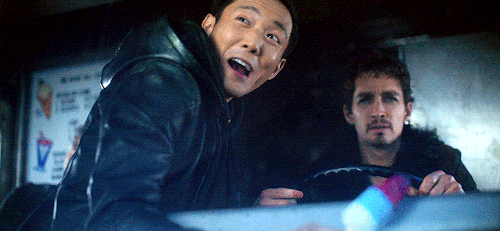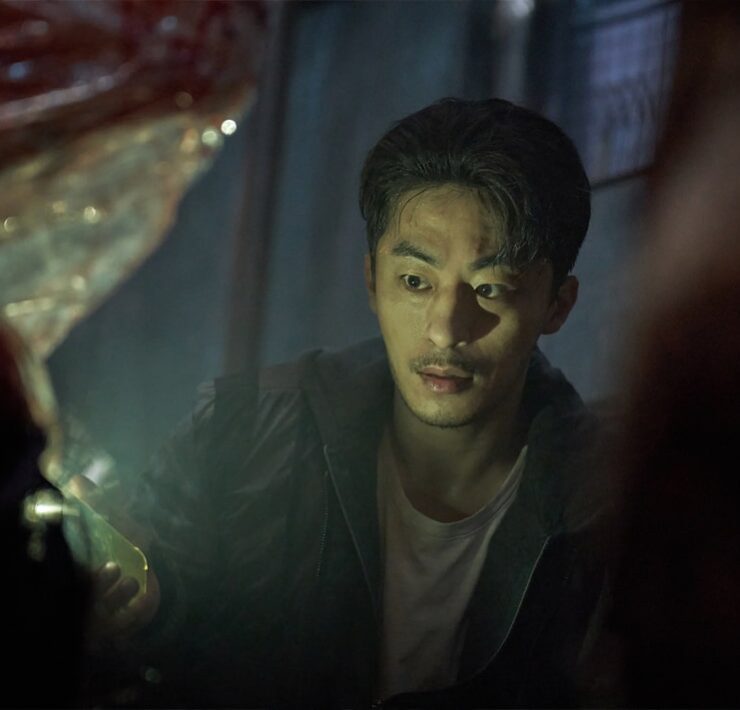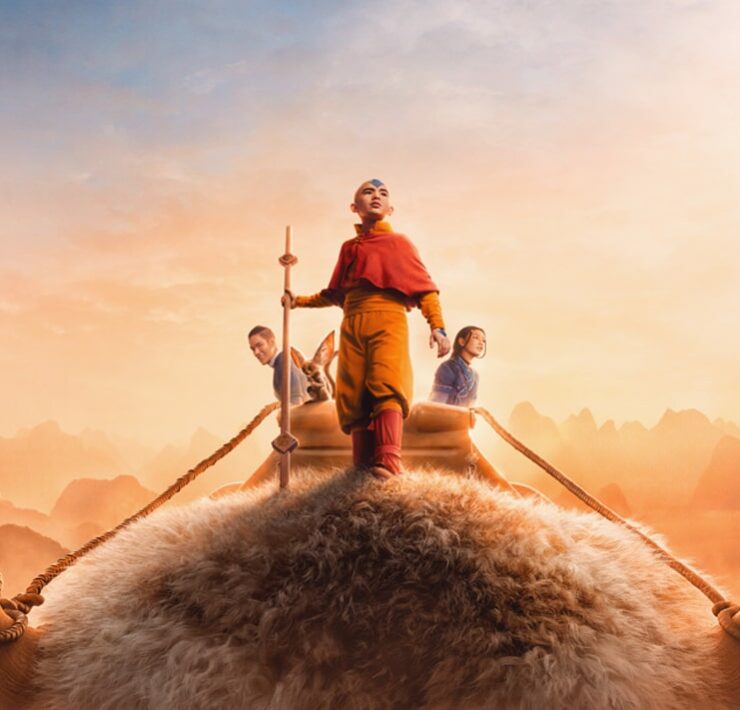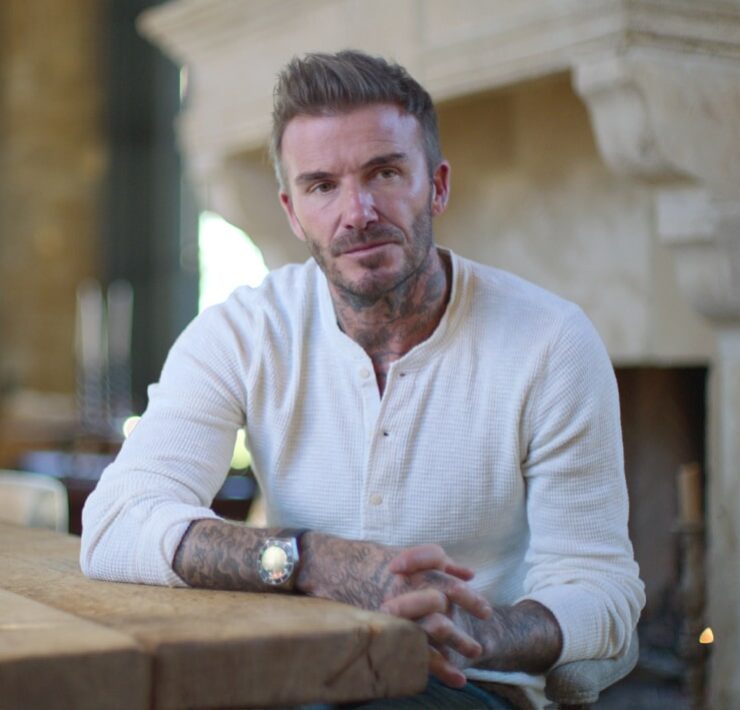The good, the bad, and the messy on Netflix’s The Umbrella Academy

Who doesn’t know of a dysfunctional family? (I mean, I come from one.) The drama, the passive-aggressive posturing, the trauma that unhealthy dynamics create, decades-old grudges galore… So imagine the kind of mess that a dysfunctional family of superheroes with extraordinary capabilities can wreak.
This is the premise of The Umbrella Academy, the Netflix original series that was adapted by Steve Blackman from the Dark Horse Comics series written by My Chemical Romance frontman Gerard Way and illustrated by Gabriel Bá; it premiered during the weekend. On the 12th hour of October 1, 1989, 43 women from all over the world gave birth to children. Nothing unusual there, except that none of these women were pregnant when the day started.

Upon news of this phenomenon, eccentric billionaire Reginald Hargreeves sought out to “adopt” all 43 children, though he ended up finding only seven of them. Under their adoptive father’s tutelage, the children were raised to become ever-ready to stop crime and save humanity with the help of their unique superpowers, sharpened under Hargreeve’s borderline abusive eye.
The kids, by the way, are Number One (Luther), Number Two (Diego), Number Three (Allison), Number Four (Klaus), Number Five (Five), Number Six (Ben), and Number Seven (Vanya). Their powers, respectively, are immense strength, dexterity with knives, manipulation of reality, communication with the dead, the ability to jump through space and time, the possession of monsters inside their body, and…well, Number Seven a.k.a. Vanya grew up with her father telling her there’s nothing special about her. Therefore, she was not part of The Umbrella Academy, the superhero group comprised of her six siblings. While her brothers and sister were busy honing their skills and fighting crime, Vanya spent her childhood pretty much isolated, developing a crippled self-esteem and learning how to play the violin. And even at that, her skills were still ordinary.

The strict upbringing, made even more complicated by their superpowers and the huge responsibility placed on them, have caused quite the rift among the family members through the years. In the first episode, after news of the Hargreeves patriarch’s death hit, the remaining siblings see each other for the first time in a decade. They were far from complete, though: Five had disappeared when they were all still 13-year-olds and Ben died some years later. There is some lasting enmity between Luther and Diego, with the latter’s innate prickliness stoking the competition between them on who is a better leader, and Klaus, never completely at ease with his superpower, has become a junkie because it seems only drugs can keep the ghosts away. There’s also some weird incest stuff that viewers can pick on between a specific couple of siblings (this gets confirmed later on but not in any overtly sexual way), but all in all, the five remaining Hargreeves are alienated from each other, and all of them hate their late father for the fucked up way he had raised them. Also, they all love to jam to Tiffany’s “I Think We’re Alone Now.”
Sounds like any run-of-the-mill family, right?
While I’m still fresh from a weekend binge, here’s my take on what’s great (and not-so-great) about The Umbrella Academy.
The good
I hope whoever supervised the scoring for this series got paid well, because the choice of pop songs to go along with the fight scenes pays off really well. While the stunt choreography sometimes feels a little clunky and the lighting often a little too dark for viewers to see what is going on clearly, there’s something so viscerally enjoyable in listening to Freddie Mercury belting out “Don’t Stop Me Now” as nefarious characters get maimed and rained on by a hail of bullets. That’s not the scene in the YouTube clip below, but it’s a taste of the cheeky, campy fun that pops up in the series, sometimes when you least expect it.
The Umbrella Academy has that tinge of darkness to it, which is something that can be expected from screen adaptations of graphic novels and comic books series, but the violence and gore gets relieved occasionally by visual/physical humor. The change in the mood can sometimes be jarring, but this is a world that is far from normal, and even within it, the Hargreeves aren’t average occupants.
(The clip above is from a fan account, hence the Spanish subtitles and the error in the song title.)
Speaking of, you’ve seen the beautiful set design in the Hargreeves mansion in the dancing clip, and it’s a consistent production value all throughout the series. Interiors are stylized and meticulously cluttered, and every location looks pretty. None of the typical gritty feel that stylized superhero films and TV shows take on—one of The Umbrella Academy‘s more refreshing characteristics.
Another good thing is actor Aidan Gallagher, who plays Five. As a time-space traveler, Five has seen—and lived in—the future, and spent decades trying to go back to an appropriate time when he could still stop the impending gloom awaiting the world. Spoiler alert: He is able to attend his father’s funeral. Curiously, though, even though he had gotten older in a different lifetime, Five’s return to the present has him appearing the same age he was when he first disappeared. And Gallagher, who is only 15, is somehow able to play a kid and a 58-year-old dude trapped in a 13-year-old’s body throughout the series. You buy his cynicism, his fatigue, and his frailty. Kid is talented.

Runner-ups: Diego can be a dick, and the vigilante type of character often gets tiring, but actor David Castañeda’s portrayal of him is just hammy enough to make the character fun and compelling. (Castañeda is also hot, BTW.)

Robert Sheehan as Klaus is quite annoying and manic in the beginning, but there’s a pay-off once his back story gets revealed even more. I found myself rooting for him soon enough.

Vanya’s story’s pay-off is also good, no small thanks to the depth that Ellen Page brings to her. The character is much inclined to self-deprecation, but Page captured the haunted quality that a childhood marked by rejection and abandonment can inflict. And can I just say that I can relate to Vanya’s anger, which comes in full glorious display in the last episode?

Then there’s Mary J. Blige who plays the hitwoman Cha-Cha, a bad-ass all throughout.

The bad
The Umbrella Academy is quite easy and enjoyable to binge-watch that perhaps the only outright “bad” thing I could accuse it of is the less-than-impressive acting of Emmy Raver-Lampman, who plays Allison. I find her the weakest link in every scene she’s in.

Oh, and another bad thing is not enough Ben (played by Justin H. Min). It seems his death isn’t fully explained in the comic book series, either, so it’s understandable why the series also doesn’t delve into it, but should there be a season two, there must be more Ben.

The messy
I assumed that the time-traveling aspect aside, The Umbrella Academy is set in 2019. But the very particular production design muddies up the timeline. Most people in its world seem to have dressed straight out of the ’50s (except for the older Hargreeves), with locations to match. It’s also hard to tell in the beginning where The Umbrella Academy is set; it could have easily been in London, but it turns out to be in some vague city in America that’s not too far from suburbia and the woods. And even with the kind of technology that allowed time travel already present, there is no single smartphone to be found here. Problems could have been solved faster and there would have been a smaller body count if people just had a way to get in touch with each other.
Motivations behind and consequences of the siblings’ particular actions are also dropped from the plot a number of times, but that’s not quite so different from real life, isn’t it? It’s just messy when it comes to a fictional setting.
Even messier is the connection between the Hargreeves. Undoubtedly they love one another, but their relationship with each other is more complicated than that. It’s aggravating to watch them as an outsider, seeing how they prolong deep-seated conflicts simply by bringing them up but not actually sitting down to resolve them. But then again, isn’t that how it is in real-life?

You know that line in Lilo and Stitch? “Ohana means family. Family means no one gets left behind or forgotten.” The Umbrella Academy gets that point across too, but only after taking a long, swerving road with tight corners. In this family, like in a lot of IRL families, people do get left behind and forgotten, creating issues that need only a trigger to be released. Often, though, that trigger is necessary and the mess it results to is inevitable; how a family chooses to deal with the aftermath then becomes the next vital step. With The Umbrella Academy, the take-home is that no mess should be too big to let fester at the expense of any loved one—and that’s a clean-up job that needs everyone’s efforts to work.
The Umbrella Academy is now streaming on Netflix.
GIFS via Giphy.















